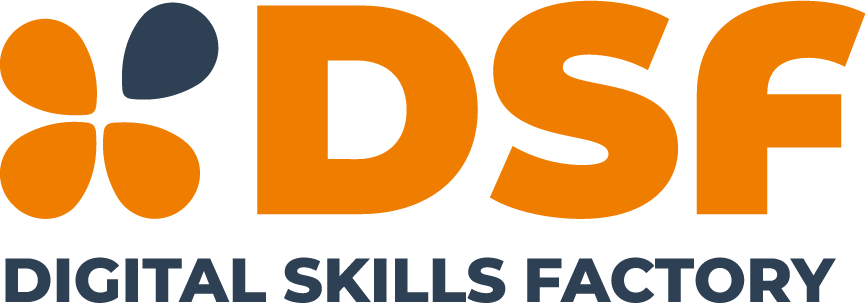
The job market is shifting fast. Automation, artificial intelligence (AI), and digital transformation are rewriting the rules of employment. Traditional career paths are being disrupted, and new skills are emerging as essential. The challenge? Many young people are unprepared for this evolving landscape. Studies show that nearly 60% of global youth feel unprepared for the workforce due to a lack of relevant skills (Bera et al., 2024). So, how do we ensure the next generation is ready?
The Essential 21st-Century Skills
Government and Industry-Led Initiatives
Governments and private sector organizations are stepping up to bridge the youth skills gap. Programs like India’s Plan-It Girls initiative have proven highly effective, equipping adolescent girls with job-readiness skills and financial literacy training (Kumar et al., 2021). The program’s impact evaluation showed that self-efficacy and gender-equitable attitudes improved significantly, leading to higher confidence in career planning.
Similarly, AI-driven workforce transition strategies are now being implemented globally. Reports suggest that countries investing in AI-focused training initiatives could see a 12% boost in youth employment by 2030 (Bera et al., 2024). By aligning education systems with labor market demands, governments can ensure that young people enter the workforce with the right skill set.
At the same time, job-to-job transitions are becoming more common, with younger professionals shifting careers at a higher rate than in previous decades (Bosler & Petrosky-Nadeau, 2016). These transitions highlight the importance of lifelong learning and adaptability, as young workers need to continuously upskill in order to stay relevant.
The modern job market doesn’t just demand degrees—it requires adaptability, problem-solving, and digital fluency. Research highlights that the most in-demand skills today include critical thinking, technological literacy, and emotional intelligence (Jumaev, 2024). However, not all young people have access to the training needed to acquire these competencies.
A study on employability programs in Kenya found that youth who participated in targeted skill-building programs saw a 30% higher employment rate than their peers who lacked such training (Makanga, 2014). This underscores the need for structured interventions that go beyond traditional education.
Government and industry initiatives are increasingly shifting focus to digital upskilling and vocational training to address this gap (Hostman, 2023). Countries investing in youth-focused workforce programs, such as Germany’s dual education system, see significantly higher employment rates among graduates.
Online Education : A Game-Changer for Youth Empowerment
Digital education is one of the most powerful tools for youth empowerment. Online learning provides flexibility, affordability, and accessibility—especially for young people in underserved areas. Research indicates that e-learning platforms have increased employability among youth by 40% in some regions, allowing them to develop job-ready skills from home (Krajewski et al., 2010).
Moreover, AI-powered career recommendation systems have become instrumental in guiding youth toward the right professions. Studies show that personalized re-education models improve career transition success rates by 50% (Ashrafi et al., 2023). This means young people can now receive real-time, data-driven career guidance, improving their chances of securing relevant job opportunities.
The Future of Work : Preparing Today’s Youth
The way forward is clear: education must evolve to meet the demands of the digital economy. Schools, universities, and training centers need to embed technology, sustainability, and innovation into their curricula. Youth outreach programs must focus on real-world applications of skills, mentorship opportunities, and industry collaborations.
More importantly, young people need lifelong learning mindsets. As industries shift and job roles evolve, the ability to reskill and upskill will define career success. Whether through government initiatives, corporate training programs, or AI-powered career pathways, the future of work is not about waiting for opportunities—it’s about creating them.
Digital Skills Factory
References
All sources were accessed on March 3, 2025.
Ashrafi, S., Majidi, B., Akhtarkavan, E., & Hajiagha, S. H. R. (2023). Efficient resume-based re-education for career recommendation in rapidly evolving job markets. IEEE access, 11, 124350-124367.
Bera, S., Pillai, S., & Pathak, D. P. (2024). Navigating the AI Impact: Job Markets and Evolving Skillsets. Available at SSRN 4851647.
Bosler, C., & Petrosky-Nadeau, N. (2016). Job-to-job transitions in an evolving labor market. FRBSF Economic Letter, 34.
Hostman, A. E. (2023). Exploring the Job Market Before and After COVID-19.
Jumaev, G. (2024). The Impact of AI on Job Market: Adapting to the Future of Work. Eurasian Journal of Academic Research, 4(7S), 1037-1041.
Krajewski, E. R., Wiencek, P., Brady, S., Trapp, E., & Rice Jr, P. (2010). Teaching Employable Skills to Special Education Youth: An Empowerment Approach. International Journal of Interdisciplinary Social Sciences, 5(1).
Kumar, P., Nuken, A., Datta, N., & Vyas, A. (2021). Impact of an empowerment and employability program for adolescent girls: Evidence from India. Journal of Youth Development, 16(2-3), 255-277.
Makanga, P. N. (2014). Influence of Kenya youth empowerment project on graduates’ perceived employability: a case of Kisumu centre, Kenya (Doctoral dissertation, University of Nairobi).
Mäkelä, K., Mertanen, K., & Brunila, K. (2021). Outreach youth work and employability in the ethos of vulnerability. Power and Education, 13(2), 100-115.

